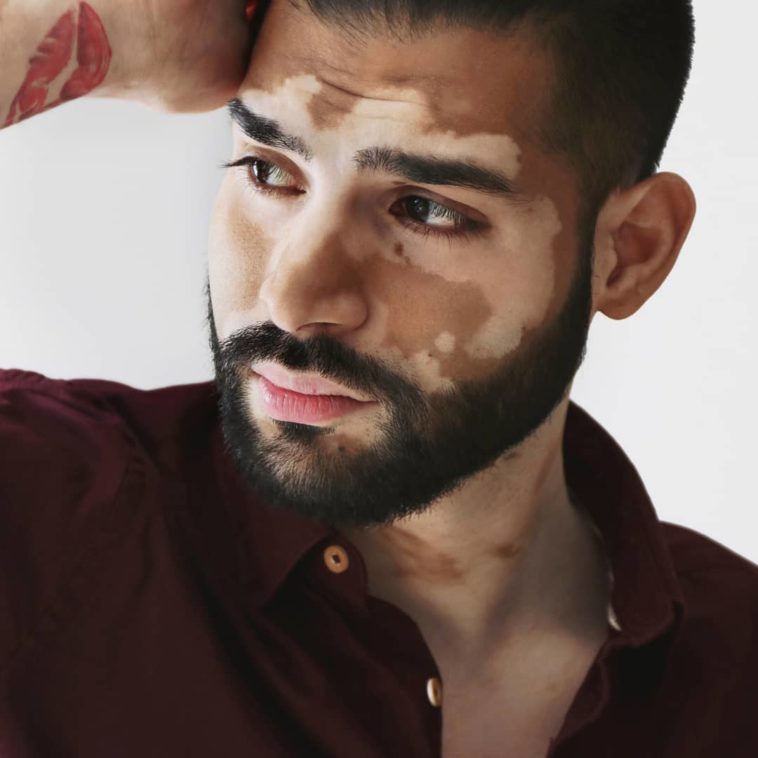Faried Molai was 15 years old when he was diagnosed with vitiligo. Luckily, he did not experience any bullying as kids from her school knew him before he got vitiligo. However, it was an internal struggle for him. “I felt ashamed of my appearance, so I was afraid to change in the locker rooms at school. I never wore T-shirts and was always covering my body. I was afraid to swim; I was afraid to talk to people. I also never looked someone in their eyes and was always looking down. It took me up to 7 years to fully accept my vitiligo,” Faried recalls.
Just like many vitiligo fighters, Faried was looking for some words of wisdom and inspiration to rediscover himself. He watched a documentary about The Secret. “I have watched this documentary a billion times to change my mindset. At an older age, I felt that it wasn’t enough, and I had to put more action to achieve a positive mindset. So, I started as a sales agent where I had to talk to people on the streets.” he shares.
Now, Faried had to confront himself. He had to talk to people and of course look straight in their eyes. But, in the end, he realized that people treated him like any other salesman because he was good at his work. “This job as a sales agent was the best choice I made. It made me the person that I am today. Ringing at people’s door and selling them stuff, which they don’t need was indeed my therapy for confronting others and be social again.” Faried opens up.
It’s no secret that people with vitiligo often have difficulties with their love life. But, Faried has a different perspective on it. “I, myself, had difficulties at first because the first thing people notice is your appearance, and sadly, many people are short-sighted. Over the years, I have had lots of contact with women, and the women I dated did not care about my skin condition. They did so because I treated myself as a normal person and accepted myself. If you don’t love yourself then how would someone else love you? For all those who are having difficulties with their love life, make sure that you love yourself first and find a purpose in life,” Faried offers a piece of advice.
What are some things that people often get wrong about his vitiligo? We asked Faried. He replied, “Most people think that I got burned or they think it’s a terrible disease that can be contagious.” Do you feel like people with vitiligo are underrepresented in popular culture? We wanted to know his opinion. “Yes, I believe that people with vitiligo are underrepresented. The only woman who fought for her position and succeeded that I know about is Winnie Harlow.” Faried comments.
Originally from Surinam, Faried has been living in The Netherlands since childhood where he runs an entertainment agency and modeling agency. He manages artists with their career, and trains models for video productions, castings, and photo shoots. Faried’s experience as a sales guy only helped him build confidence over the years and eventually helped him build his businesses. “If I didn’t have vitiligo, I won’t be the man I am today.” We can’t agree with him more.
Faried has noticed that his vitiligo is spreading throughout his skin, which, he doesn’t mind now. “I have stopped treatment for years now because I have accepted my skin as it is. If anyone tells me about treatment, I tell that person that I don’t need it. It’s all about acceptance and your mindset. If you can’t accept yourself then who will?” Faried wants other vitiligo fighters to feel the same and change their mindset for good. He has been expressing his vitiligo on Instagram to motivate others to accept a skin condition that they have no control over.
Unite For Vitiligo wishes Faried all success and happiness in the years to come.

